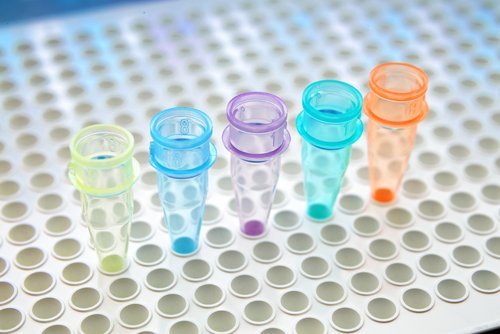
These are boom times for progress in genetic testing, but restrictions limiting access are delaying benefits we could all be experiencing right now.
The National Institutes of Health maintains a Genetic Testing Registry, which currently lists some 15,000 available genetic tests. Together, they can single out 2,800 genes for some 4,000 medical conditions—and that’s not factoring in the rapidly growing exome or genome sequencing tests that look at all known genes. With so many tests out there, there’s a good chance that one exists to scan for whatever diseases may run in your family.
But you may not be able to get those tests. Direct consumer access has always been tricky in U.S. medicine, and the FDA’s crackdown on consumer genetic testing firm 23andMe last year has providers running scared. The way such companies protect themselves from FDA pushback is by requiring a physician to serve as an intermediary between you and the test. This expert will, in theory, ensure that the right test is taken by the right patient and then explain the results in a clear and digestible way.
There are a few problems with this approach. The first is the assumption that your physician actually is an expert in ordering and reviewing genetic tests. In fact, many independent surveys of doctors—including primary care physicians and specialists—reveal that the vast majority are not confident in their own knowledge about genetic testing and in their ability to recommend it when appropriate. (In study after study, less than 20 percent rank themselves “highly confident.”) When it comes to their confidence in understanding and explaining results of such tests, those numbers get even worse.
That’s not the fault of physicians. Most doctors today were educated before genomics really took off, and the details of these often-complex tests were simply not part of their medical school curriculum. Even among those who are well versed in genomics, none could be an expert in all 15,000 tests, or the new ones that launch daily.
The onus has landed on patients, who must learn about the availability of a genetic test and then lobby their doctors to order it on their behalf. But that’s not a sure thing. Your opinion of the need for a test and your doctor’s might be different, and many physicians will resist administering a test if they believe it will not result in medically-actionable information. Meanwhile, insurance companies, wary of a flood of unnecessary and expensive genetic testing, are implementing restrictions of their own. Some will not cover genetic tests ordered by primary care physicians; they insist on prescriptions from medical geneticists, who are in such short supply that it can take months for patients to even get an appointment.
The mandatory requirement for a physician to participate in the testing process is based on a proven fallacy: the idea that consumers will be so baffled or panicked by results that they may, in effect, jump off a building (or at least seriously overreact). Scientists have carefully examined reactions by people to, say, results of a test for risk of Alzheimer’s disease—one of the scariest conditions associated with a current test. The research found that people react pretty much the same whether they get extensive genetic counseling or just a sheet of paper with their results. And in general, people in these studies have shown themselves to be remarkably resilient, shaking off even very bad news with virtually no long-term change to their state of mind.
Indeed, tests such as the one for Alzheimer’s can be useful to people in their estate planning and in other ways that physicians and insurance companies would not consider medically useful. There is a rapidly growing market of people who are interested in these tests and even willing to pay for them out of pocket, but because of the FDA-imposed physician requirement these people have few places to turn.
Until this gets sorted out, the current situation is likely to produce some bad outcomes.
One is that genetic testing companies may increasingly choose to locate in other countries with different medical requirements. Paralleling the growing trend for “medical tourism,” wealthier people may skirt US restrictions by traveling abroad for tests. This will exacerbate the access inequality that is already a serious problem in US healthcare.
Another likely scenario is that current restrictions will throttle growth of the genetic testing industry. Under a direct-to-consumer model, testing companies would quickly gather enough information on how people choose tests, whether their choices make sense, how much they will pay, and what they do with the results. Such data is crucial for insurance companies, medical centers, and even FDA to sort out best practices and policies.
To be sure, we have reached a point where certain genetic tests are now mainstream. Testing is routine for breast cancer risk in a woman with a family history, as is prenatal testing for chromosomal abnormalities. But don’t expect to be able to order such tests without the supervision of a physician anytime soon. And also don’t expect you’ll be able to learn much more about the health risk secrets stored in your genome until more progressive American thinking prevails.
How You Are Hurt by FDA Genetic Test Restrictions
These are boom times for progress in genetic testing, but restrictions limiting access are delaying benefits we could all be experiencing right now. The National Institutes of Health maintains a Genetic Testing Registry, which currently lists some 15,000 available genetic tests. Together, they can single out 2,800 genes for some 4,000 medical conditions—and that’s not factoring in the rapidly growing exome or genome sequencing tests that look at all known genes. With so many tests out there, there’s a good chance that one exists to scan for whatever diseases may run in your family. But you may not be able to get those tests. Direct consumer access has always been tricky in U.S. medicine, and the FDA’s crackdown on consumer genetic testing firm 23andMe last year has providers running scared.















